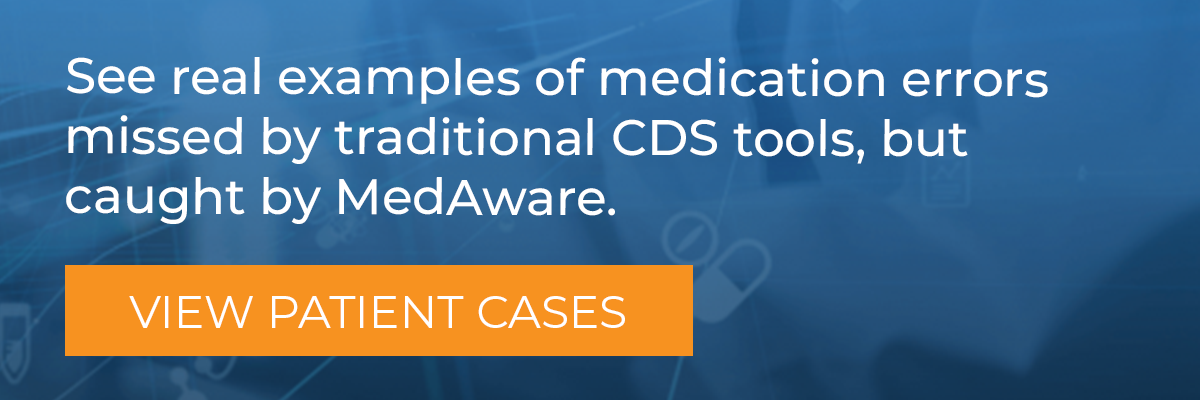For years, the financial industry has applied Artificial Intelligence (AI) to its systems to better manage and monitor transactions at the “person” level. Leveraging AI provides pattern recognition to their customers’ unique spending behaviors and surfaces outlier trends that may indicate fraud before damage is done. This application of AI to drive innovation in the financial sector has led to early-risk identification and safer transactions around the globe—regardless of where geographically the consumer spends—for both the consumer and institution.
Applying AI Technology to Medication Safety
A similar approach can be applied in the healthcare industry and patient data. Because the application of AI works well with transactional dataーthat which flows bi-directionallyーit translates well to areas like medication ordering and safety monitoring. Early warning signs and risks associated with a patient’s prescription medications or other evolving dangerous medication situations are just some of the areas AI can lend a hand, and safety net. By continuously monitoring for any change in a patient’s medical chart and mapping those changes in real time against historical medical and medication behavior patterns, AI technology ensures care teams have the needed insight at the appropriate time to prevent dangerous medication-related errors and risks.
Take, for example, one of the most devastating public health crises in US history—the opioid epidemic.
How AI Can Identify Early Opioid Use Dependency
The current approach to battling the opioid crisis is reliant on tools and systems that identify patients who are already opioid dependent and require medication-assisted therapy. Leveraging AI can help identify these patients at a much earlier stage by stratifying risk and behavioral changes that may escalate an individual’s dependency. The need to intervene as early as possible is even more pronounced when taking into account that one in four US patients receiving long-term opioid therapy in a primary care setting struggles with opioid addiction.
Tools, such as those developed by MedAware, provide critical, patient-specific insights and predictions in a clinician’s workflow at the time of the prescription, as well as any time after the prescription has been dispensed and treatment initiated. Similar to fraud detection, if outlier behavior or new data suggests misuse or increased risk of dependency, the provider can be immediately notified and intervene proactively.
Providing the Tools for Success
An AI-enabled, data-driven approach identifies far more errors and evolving dangerous situations than conventional alerting systems that are hardwired. Further, having this AI technology directly embedded into a clinician’s daily workflow enables timely intervention, helping to keep patients safe and improving the quality of care.
Managing opioid use with AI technology is only the tip of the iceberg in the realm of medication safety. Providing clinicians with highly targeted, relevant alerts that identify outlier data can be used to manage potential typographical errors, drug interactions, adverse events, and more. It’s time to provide clinicians and patients the same safety net on their medications as they have with their finances.

Additional reading you may be interested in:
